10 Best Herbal Tinctures For Dandruff

Herbal tinctures for dandruff are concentrated liquid extracts made from various plants known for their antifungal and anti-inflammatory properties.
Common ingredients include tea tree oil, neem, rosemary, and garlic, which help reduce scalp inflammation and inhibit the growth of Malassezia, a yeast linked to dandruff. These tinctures are typically applied directly to the scalp and left on for several minutes before rinsing, offering a natural alternative to conventional medicated shampoos. They are generally safe for most people, though a patch test is recommended to check for allergic reactions.
Regular use of herbal tinctures can help manage dandruff and promote a healthier, more balanced scalp environment.
Table of Contents
- 1. Rosemary (Rosmarinus officinalis)
- 2. Field horsetail (Equisetum arvense)
- 3. St. john's wort (Hypericum perforatum)
- 4. Stinging nettle (Urtica dioica)
- 5. Camellia (Camellia sinensis)
- 6. Salvia (Salvia officinalis)
- 7. Aloe vera (Aloe barbadensis)
- 8. English lavender (Lavandula angustifolia)
- 9. Geranium (Pelargonium graveolens)
- 10. Ginkgo (Ginkgo biloba)
1. Rosemary (Rosmarinus officinalis)

Rosmarinus officinalis, commonly known as rosemary, is a popular herb used in the formulation of tinctures for treating dandruff.
These tinctures are valued for their natural antifungal and antimicrobial properties, which help combat the yeast-like fungus Malassezia that often contributes to dandruff. Rosemary tinctures can be applied directly to the scalp to reduce flaking, itching, and redness associated with dandruff. The essential oils in rosemary, such as camphor and cineole, promote scalp health and stimulate blood circulation, enhancing hair growth.
Regular use of rosemary tinctures may lead to a noticeable improvement in scalp condition and overall hair vitality.
2. Field horsetail (Equisetum arvense)
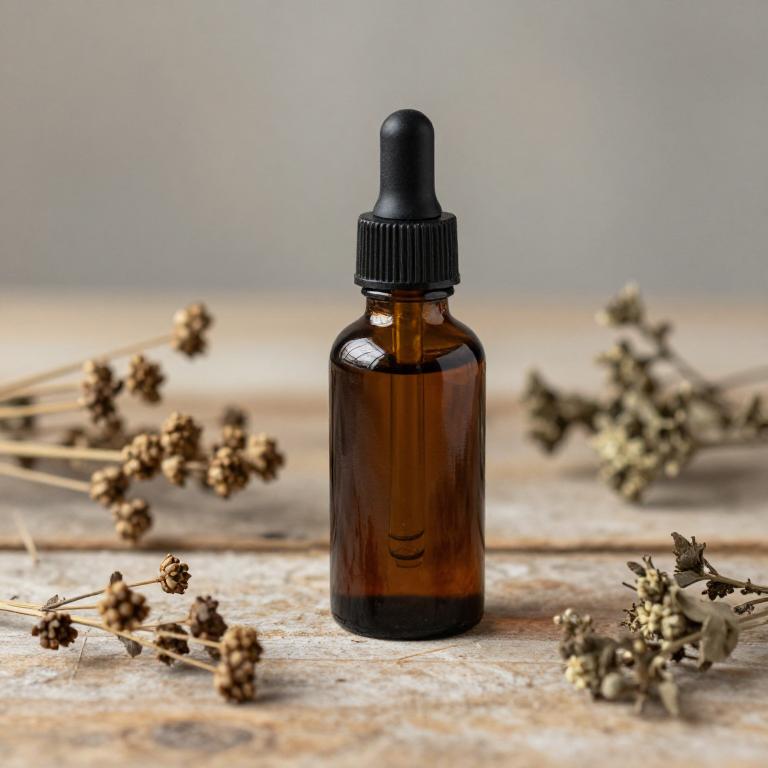
Equisetum arvense, also known as horsetail, is a traditional herbal remedy that has been used for centuries to address various health issues, including dandruff.
Its tinctures are prepared by extracting the active compounds from the plant's stems using alcohol, making them potent and easy to use. The herb is rich in silica, which helps strengthen the scalp and promote healthy hair growth, making it effective in reducing flaking and itching associated with dandruff. When applied topically, Equisetum arvense tinctures can soothe the scalp and improve overall scalp health.
However, it is important to consult a healthcare professional before use, especially if you have sensitive skin or are taking other medications.
3. St. john's wort (Hypericum perforatum)

Hypericum perforatum, commonly known as St. John's Wort, is a herbal plant that has been traditionally used for its potential therapeutic benefits, including its use in herbal tinctures for dandruff.
These tinctures are made by extracting the active compounds from the plant's flowers using alcohol, which helps preserve the beneficial properties. The anti-inflammatory and antifungal properties of Hypericum perforatum may help reduce scalp irritation and fungal overgrowth, both of which are common contributors to dandruff. Some studies suggest that the compounds in St. John's Wort may support healthy scalp function and reduce flakiness.
However, it is important to consult with a healthcare provider before using these tinctures, as they may interact with other medications or have side effects.
4. Stinging nettle (Urtica dioica)

Urtica dioica, commonly known as stinging nettle, is a versatile herb that has been used for centuries in traditional medicine.
Its tincture form is particularly beneficial for addressing dandruff due to its rich content of antioxidants, minerals, and anti-inflammatory compounds. When applied topically, Urtica dioica tinctures can help reduce scalp irritation, soothe inflammation, and balance sebum production, which are common contributors to dandruff. This natural remedy is often preferred by individuals seeking alternative treatments to conventional shampoos that may contain harsh chemicals.
Regular use of Urtica dioica tinctures may promote a healthier scalp environment and reduce the frequency of flaky, itchy skin on the head.
5. Camellia (Camellia sinensis)
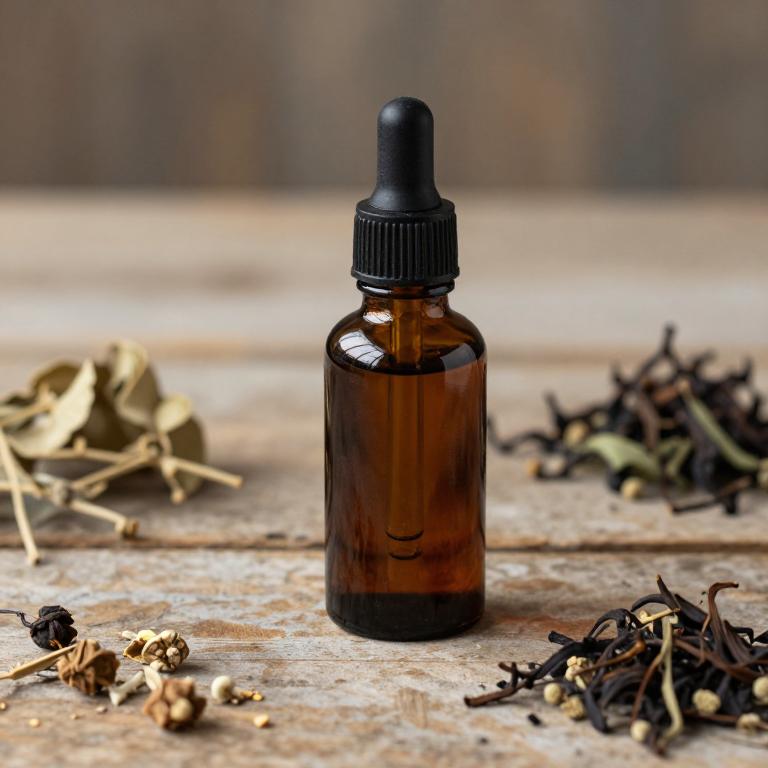
Camellia sinensis, commonly known as the plant from which green and black tea are derived, has been traditionally used for its various health benefits, including its potential to combat dandruff.
Herbal tinctures made from Camellia sinensis are believed to contain compounds like polyphenols and catechins, which have antimicrobial and anti-inflammatory properties. These tinctures may help reduce the growth of Malassezia, a fungus often associated with dandruff, by creating an unfavorable environment for its proliferation. Additionally, the antioxidants in Camellia sinensis tinctures can soothe scalp irritation and promote a healthier scalp environment.
While more research is needed, some individuals have reported improved scalp health and reduced dandruff after incorporating these tinctures into their hair care routine.
6. Salvia (Salvia officinalis)

Salvia officinalis, commonly known as sage, has been traditionally used in herbal medicine for its antifungal and antimicrobial properties, making it a promising ingredient in tinctures for dandruff treatment.
Sage tinctures work by reducing the growth of Malassezia, a yeast-like fungus that is often associated with dandruff, thereby helping to soothe scalp inflammation and irritation. These tinctures are typically prepared by soaking dried sage leaves in alcohol to extract their active compounds, which include flavonoids and essential oils. When applied topically to the scalp, sage tinctures can help exfoliate dead skin cells and promote a healthier scalp environment.
However, it is important to consult a healthcare professional before use, especially for individuals with sensitive skin or existing scalp conditions.
7. Aloe vera (Aloe barbadensis)
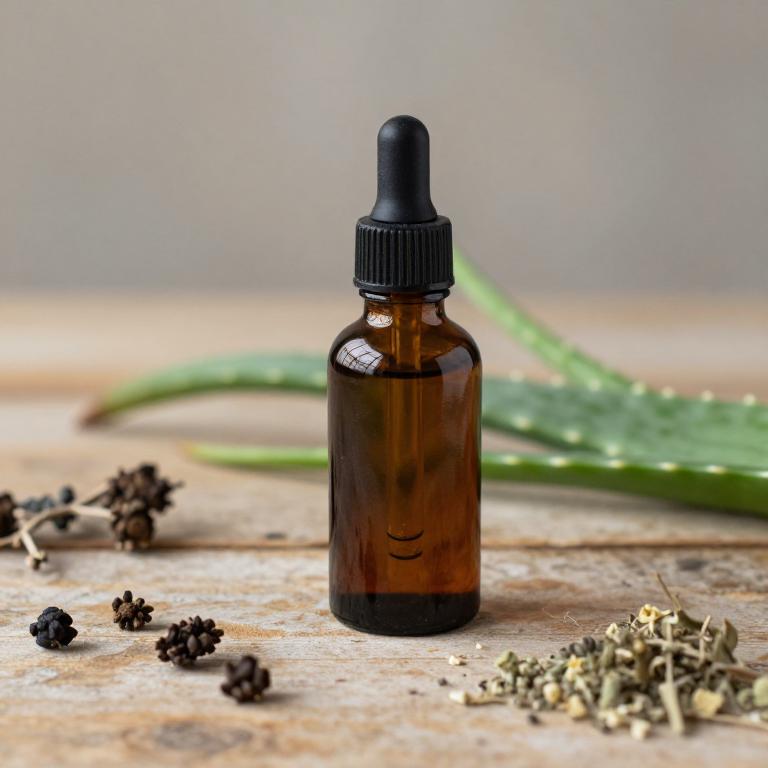
Aloe barbadensis, commonly known as aloe vera, has been traditionally used for its soothing and healing properties, and its herbal tinctures are gaining popularity for their potential benefits in treating dandruff.
These tinctures are derived from the gel of the aloe plant, which contains various bioactive compounds such as polysaccharides, enzymes, and antioxidants that may help reduce scalp inflammation and promote skin regeneration. When applied topically, aloe vera tinctures can help moisturize the scalp, balance oil production, and alleviate the itching and flaking associated with dandruff. Some studies suggest that the anti-fungal and antibacterial properties of aloe vera may help combat the fungi and bacteria that contribute to dandruff.
While more research is needed, many users report positive results, making aloe barbadensis tinctures a natural and soothing option for those seeking alternative treatments for dandruff.
8. English lavender (Lavandula angustifolia)
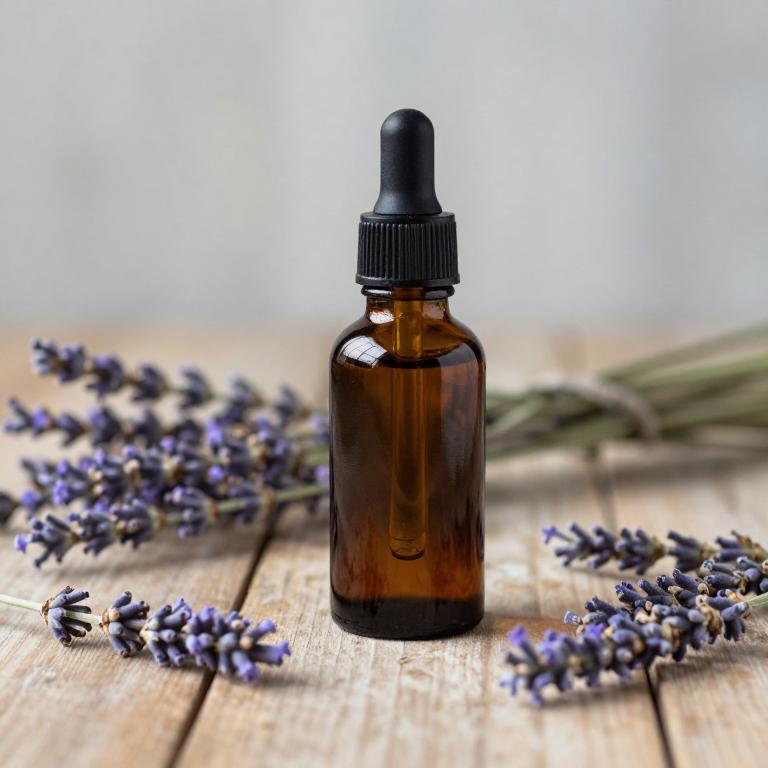
Lavandula angustifolia, commonly known as English lavender, is widely used in herbal tinctures for its soothing and antifungal properties.
These tinctures are often formulated to address dandruff by reducing scalp inflammation and combating fungal overgrowth, which are common causes of flaky skin. The essential oils in lavender tinctures, such as linalool and lavandulyl acetate, have been shown to possess antimicrobial and anti-inflammatory effects that support scalp health. When applied topically, these tinctures can help alleviate itching, redness, and irritation associated with dandruff.
However, it is important to dilute the tincture properly before use to avoid skin irritation and to consult a healthcare provider if symptoms persist or worsen.
9. Geranium (Pelargonium graveolens)
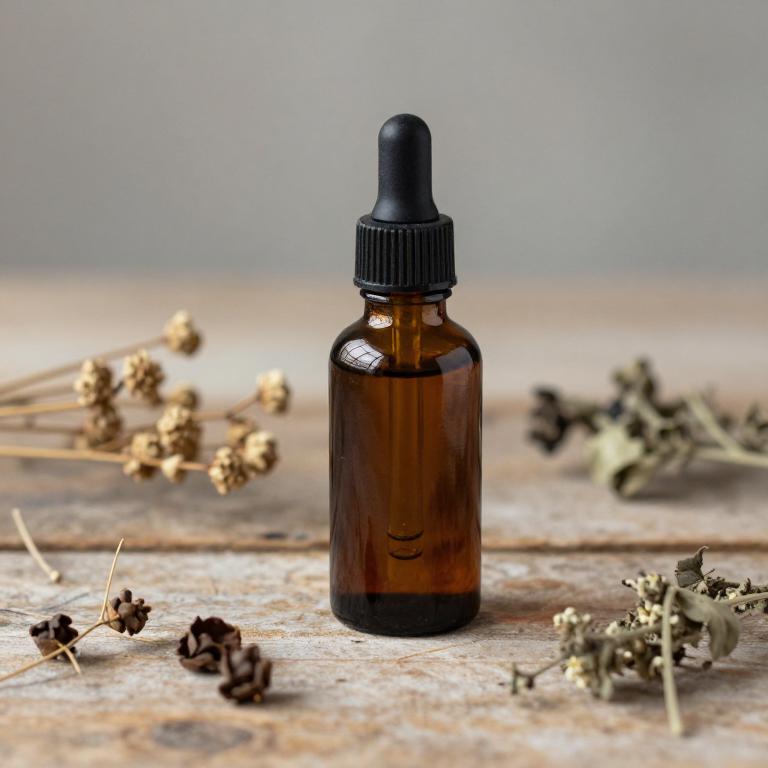
Pelargonium graveolens, commonly known as geranium, is a plant whose herbal tinctures have been traditionally used for their potential benefits in treating dandruff.
The tinctures are prepared by extracting the essential oils and active compounds from the dried leaves of the plant, which are believed to possess antimicrobial and antifungal properties. These properties may help combat the fungi and bacteria that contribute to dandruff, thereby reducing flaking and itching of the scalp. Pelargonium graveolens tinctures are often used as a natural alternative to commercial dandruff shampoos, appealing to individuals seeking holistic treatments.
However, it is important to consult a healthcare professional before using these tinctures, as they may interact with other medications or cause allergic reactions in some individuals.
10. Ginkgo (Ginkgo biloba)
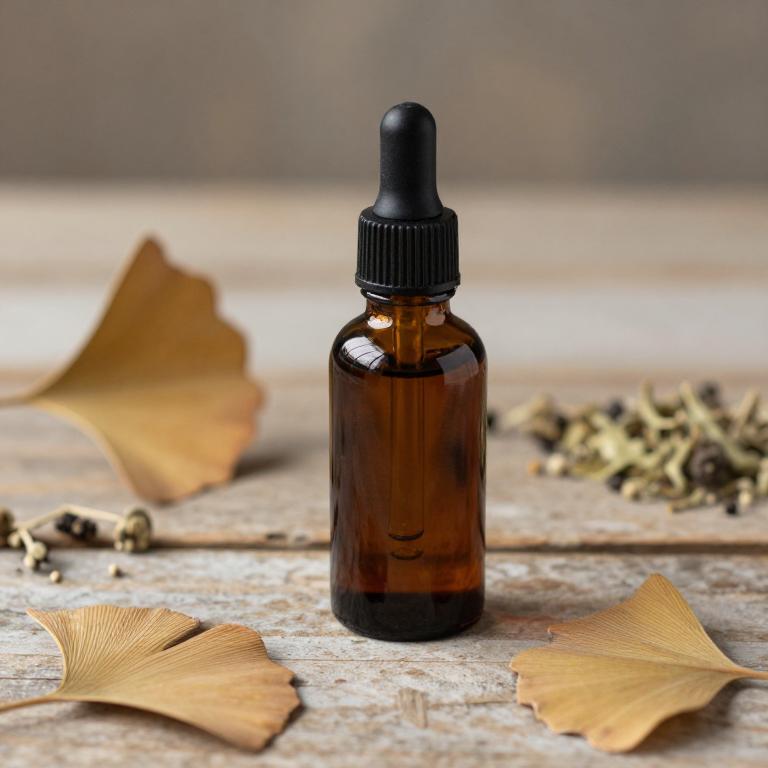
Ginkgo biloba herbal tinctures are traditionally used for their potential benefits in promoting scalp health and reducing dandruff.
These tinctures contain bioactive compounds such as flavonoids and terpenoids, which may help improve circulation and reduce inflammation on the scalp. Some studies suggest that ginkgo biloba can support the natural balance of the scalp microbiome, potentially decreasing the overgrowth of fungi like Malassezia that contribute to dandruff. While more research is needed, many users report a noticeable improvement in dandruff symptoms after regular use.
As with any herbal remedy, it is advisable to consult a healthcare professional before incorporating ginkgo biloba tinctures into a dandruff treatment regimen.